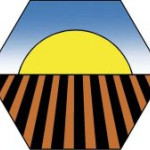- 업종: Earth science
- Number of terms: 26251
- Number of blossaries: 0
- Company Profile:
An international scientific society that fosters the transfer of knowledge and practices to sustain global soils. Based in Madison, WI, and founded in 1936, SSSA is the professional home for 6,000+ members dedicated to advancing the field of soil science. It provides information about soils in ...
Histosols that have an accumulation of organic soil materials mainly as forest litter that is <1 m deep to rock or to fragmental materials with interstices filled with organic materials. Folists are not saturated with water for periods long enough to limit their use if cropped.
Industry:Earth science
A surface layer of mineral soil that has the same requirements as the mollic epipedon with respect to color, thickness, organic carbon content, consistence, structure, and phosphorus content, but that has a base saturation <50% when measured at pH 7.
Industry:Earth science
Rock fragments of any size or shape (usually coarse and angular) derived from and lying at the base of a cliff or very steep rock slope. The accumulated mass of such loose, broken rock formed chiefly by falling, rolling, or sliding.
Industry:Earth science
Any device which gathers electromagnetic radiation (EMR) or other energy and presents it in a form suitable for obtaining information about the environment. Passive sensors, such as thermal infrared and microwave, utilize EMR produced by the surface or object being sensed. Active sensors, such as radar, supply their own energy source. Aerial cameras use natural or artificially produced EMR external to the object or surface being sensed.
Industry:Earth science
Degree of deviation of a surface from the horizontal, usually expressed in percent or degrees.
Industry:Earth science
Mineral soils that are dominated by andic soil properties in 60 percent or more of their thickness. (An order in the U. S. system of soil taxonomy. )
Industry:Earth science
Pertaining to or designating the portion of the electromagnetic spectrum with wavelengths just beyond the red end of the visible spectrum in the wavelength interval from about 0. 75 μm to 1 mm.
Industry:Earth science
Material transported and deposited by wind and consisting of predominantly silt-sized particles.
Industry:Earth science
Organic soil material in which a significant part of the original plant parts are recognizable and a significant part is not.
Industry:Earth science
